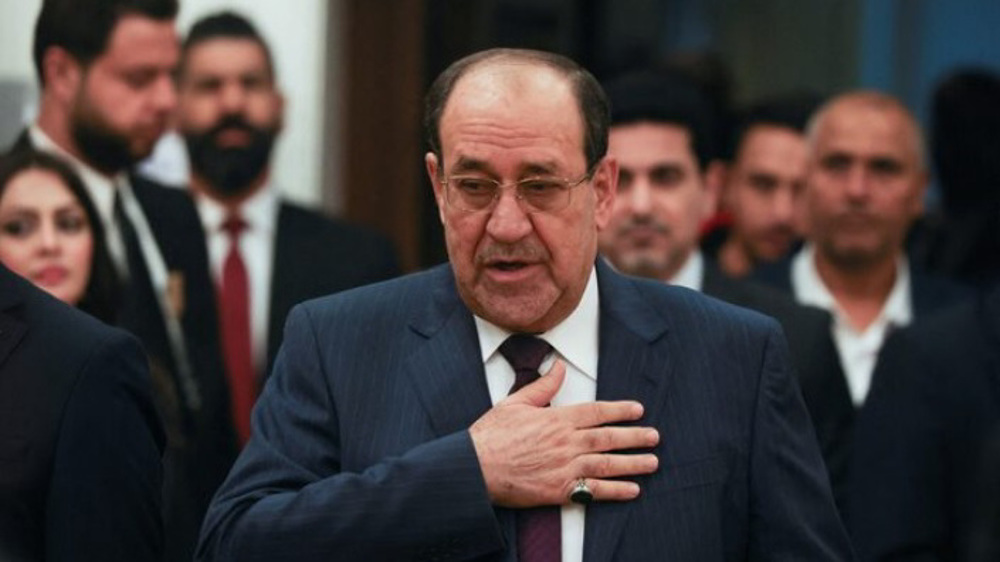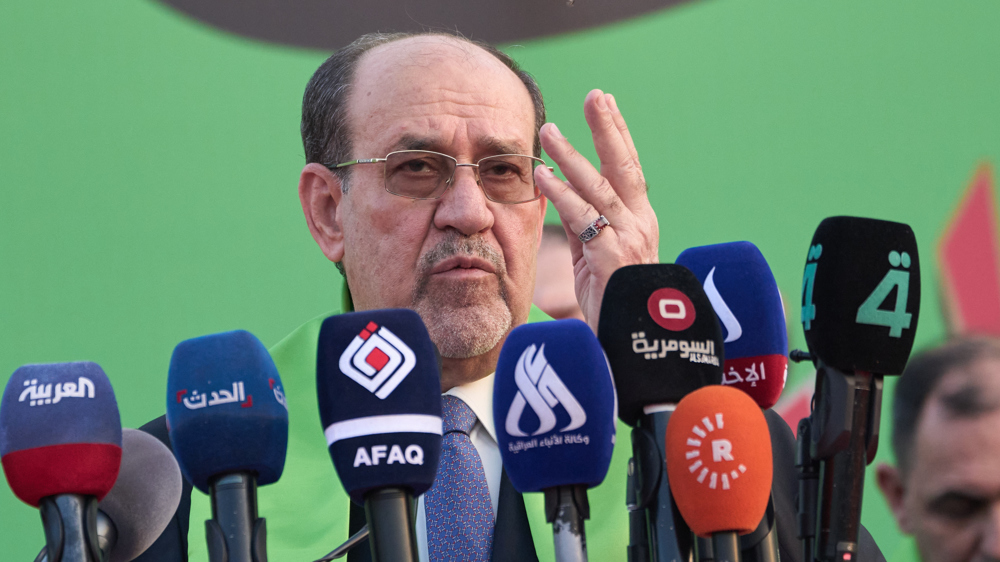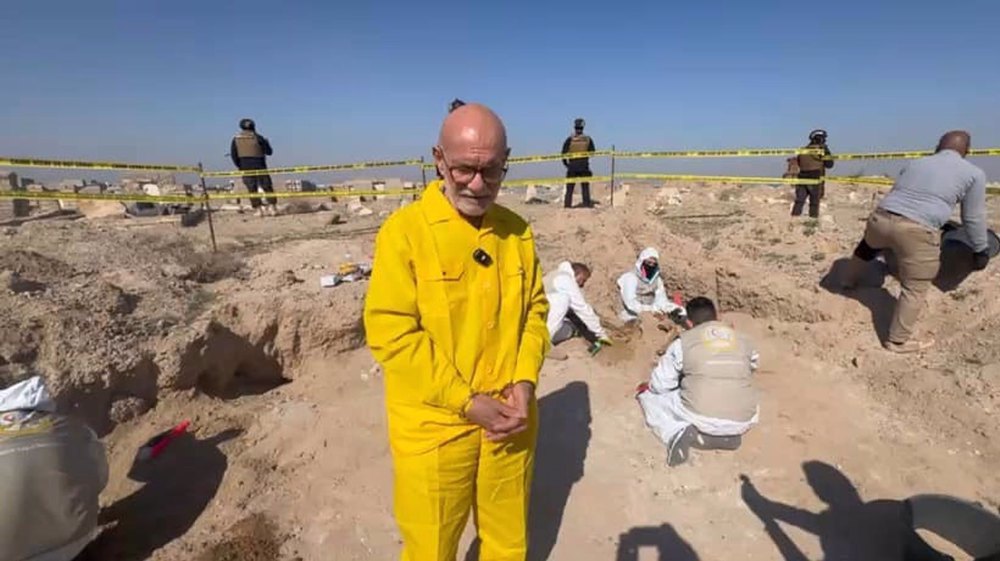Iraqi PM hails top Shia cleric Ayatollah Sistani’s role in terror fight
The Iraqi premier has thanked top Shia cleric Grand Ayatollah Ali al-Sistani for his contribution to the fight against Daesh terrorists, saying his 2014 religious decree (fatwa), which mobilized volunteer forces behind army troops on the battlefield, “saved” the Arab state.
In June 2014, shortly after Daesh unleashed its terror campaign in Iraq, Ayatollah Sistani issued a fatwa calling on all Iraqi citizens to defend their country.
“Citizens who are able to bear arms and fight terrorists, defending their country and their people and their holy places, should volunteer and join the security forces to achieve this holy purpose,” said a Sistani representative in his sermon at Friday prayers in the holy Iraqi city of Karbala at the time.
The fatwa helped Shia fighters, Sunni tribesmen as well as Christian and Yezidi volunteers gather under one umbrella of the Popular Mobilization Units (PMU), commonly known as Hashd al-Sha’abi, to prevent Daesh’s advances.
In the early days of Daesh emergence, Iraqi government forces, who overwhelmed by the terror group’s lightening advances, suffered heavy blows on the battle ground.
However, Hashd al-Sha’abi fighters helped the army regain strength and achieve an upper hand in the fight against Daesh militants.
The Iraqi parliament last year recognized Hashd al-Sha’abi as an official force with similar rights as those of the regular army.
In a statement issued on Friday, Abadi offered his “deep thanks” to Ayatollah Sistani for “his great and continuing support to the heroic fighters.” He also stressed that the Shia cleric’s 2014 call “saved Iraq and paved the way for victory” over Daesh.
Abadi’s remarks came one day after he announced an end to Daesh’s “state of falsehood” following the recapture of Mosul’s landmark Grand al-Nuri Mosque, from where the terror outfit proclaimed its so-called caliphate three years ago.
Read more:
Separately on Friday, Saqer Ayad, a member of Iraqi Federal Police, told Press TV that fighting was underway in Mosul’s Old City.
“The enemy is taking its last breath. We’ve surrounded the terrorists in Old Mosul from three directions, the west, south and north,” he said.
Another policeman, Aqil Isma’el, announced that al-Zebwani Mosque had been liberated and now the Iraqi forces could advance to Mosul’s al-Faruq neighborhood.
A third unnamed policeman told Press TV, “We are hunting down the enemy. The resistance is very fierce, very violent and there are desperately trying to cause breaches in our defense lives with sniper fire and mortars, but our men are well-experienced in countering the tactics.”
The Iraqi army soldiers and allied volunteer fighters have been leading the Mosul liberation operation since October 2016.
Iraqi authorities expect the battle to end in coming days as remaining Daesh elements are bottled up in a few districts of the Old City.
Zelensky’s name appears over 50 times in Epstein files: Opposition leader
Tehran rejects Trump’s riot death toll, demands proof
VIDEO | Police battle opposition protesters in Albanian capital
Israeli expansion across West Asia would be ‘fine’: US envoy
VIDEO | UK court frees remaining jailed members of Palestine Action
VIDEO | Former prince Andrew arrested by British police
VIDEO | Backlash mounts as Pakistan joins US-led Gaza ‘Board of Peace’
Saudi-Greece fiber optic project to pass through Syria instead of occupied territories: Report










 This makes it easy to access the Press TV website
This makes it easy to access the Press TV website